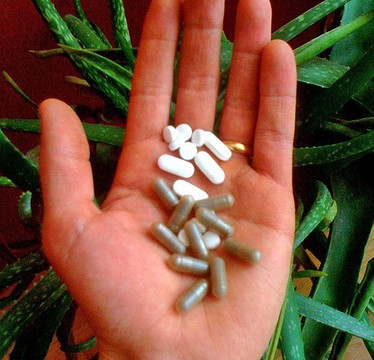Infertility Supplements and You
Do a quick internet search for infertility supplements and you’ll pull up page after page of products, all making promises to boost your fertility and help you conceive. But are these supplements really helpful or are they making false promises?

The answer depends on what the ingredients are. Some of them are nothing more than a prenatal vitamin or multi-vitamin, but there are some herbal supplements that have been shown to have some positive effect on fertility.
- Chasteberry, or vitex ““ A berry found in asia that has been shown to have an effect on the menstrual cycle. Women frequently use it to help regulate their cycles, promote ovulation, and help manage PMS.
- Green tea ““ An ingredient in some products, there is currently no research to support the use of green tea alone to boost fertility. More research is needed before a definite conclusion can be reached. Green tea is, however, rich in antioxidants and is a great substitution for your morning coffee or as an addition to your diet, regardless of the effect on your fertility.
- Vitamins E and C ““ There have been some studies that have shown increase in sperm count and motility during supplementation with vitamins E and C. More research is needed, though adding a multivitamin that contains these vitamins certainly won’t hurt.
- Folic acid ““ While not an herb that will help boost fertility, folic acid is an important part of every woman who is either pregnant or trying to get pregnant. A mom’s folic acid intake can dramatically reduce the risk of a baby being born with certain birth defects, including spina bifida.
- Red clover ““ A phytoestrogen, which is a plant-based chemical that acts like estrogen in the body. Though the research is unclear about the relationship between fertility and red clover, there is some thought that it could nourish the uterine lining and provide hormonal support of a pregnancy.
- L-carnitine ““ There is some evidence that l-carnitine supplementation may boost sperm count and motility. More research is needed to investigate this relationship.
Whatever You Decide
Whenever you decide to take herbal supplements, there are a few things you should keep in mind. First, just because something is advertised as all natural, doesn’t mean that it’s good for you. Many herbal supplements do interact with prescription medication or underlying medical conditions. For that reason, you should speak with your doctor before starting any herbs.
Second, the FDA doesn’t regulate herbal supplements. That means that there is no oversight of the companies developing these supplements to make sure that they are providing a safe product that is what it is advertised as being.
If you keep an eye on your ingredients, do a little research and keep your doctor informed, herbal supplements can be a beneficial additive to your diet and health.
Thank-you for reading this post. Please feel free to leave your thoughts in the comment section below.